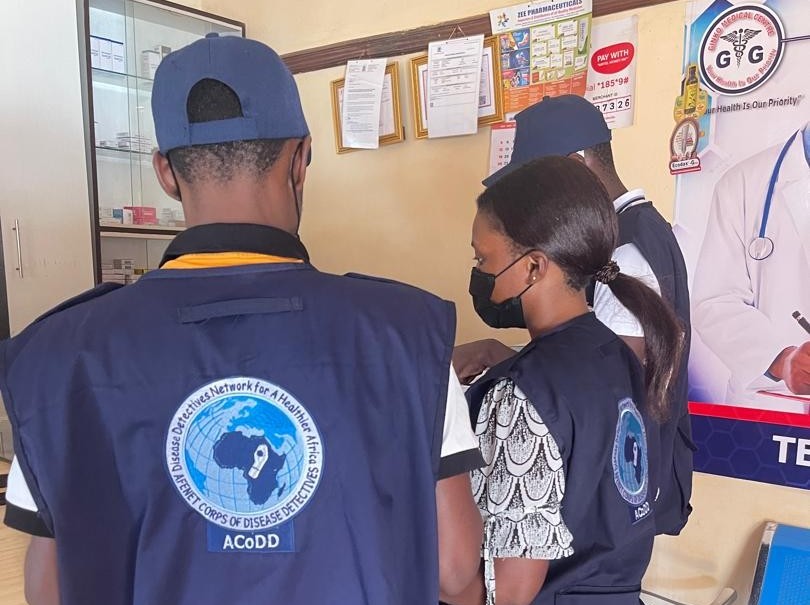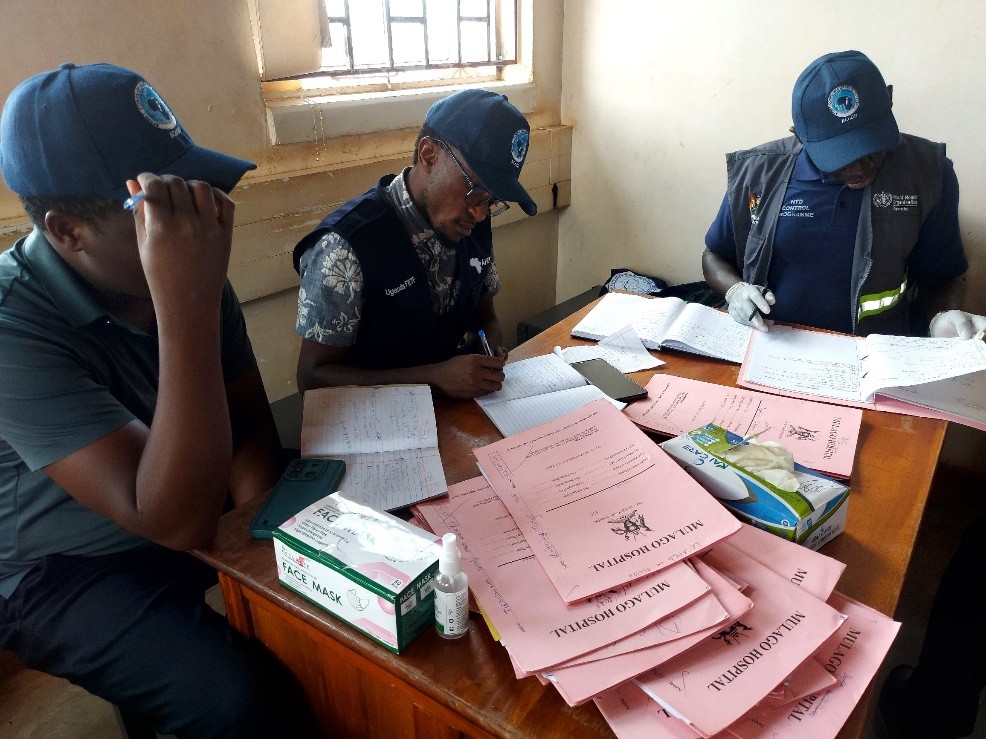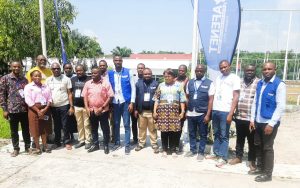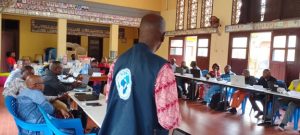Day 3: Continued records review in the active Ebola virus case search
-
by
AFENET
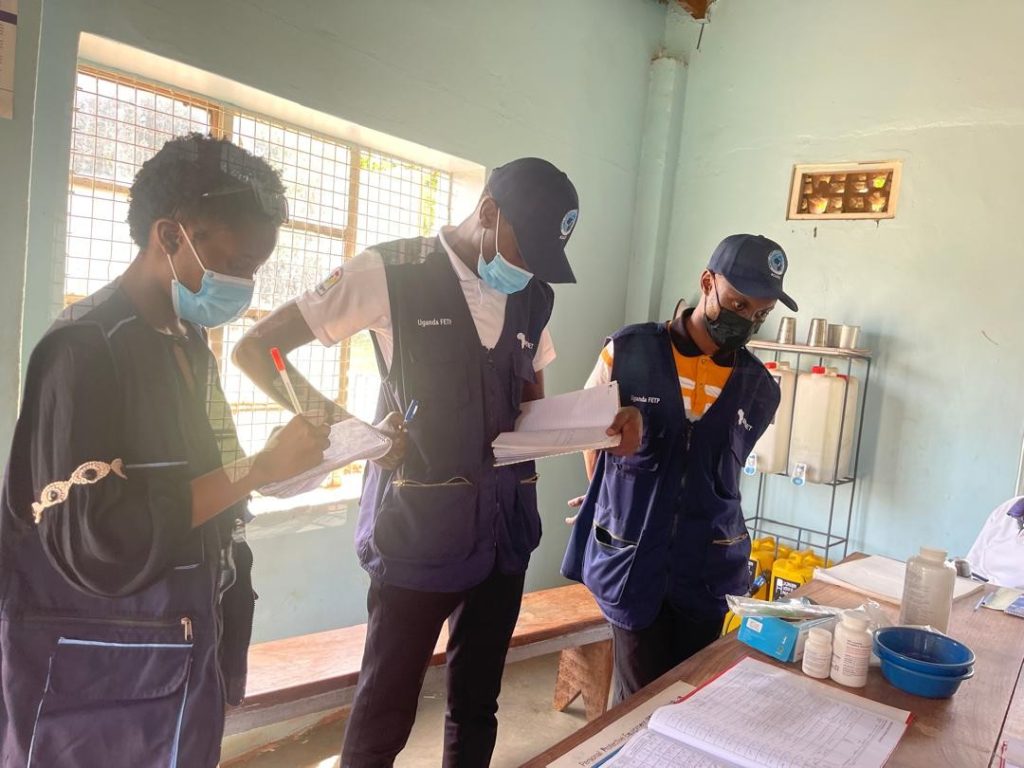

The third day of the active case-finding activity commenced with a morning briefing at the Emergency Operations Center (EOC) offices at the Ministry of Health. Led by Dr. Wenani Daniel and Mr. Alex Mulyowa, the session provided updates on the ongoing records review and introduced key refinements to enhance the process.
One significant modification involved reporting case findings by month rather than cumulatively. Teams were required to document the total number of medical records reviewed, the number of cases suggestive of EVD, and the total alerts identified for each month from October 2024 to January 2025. Additionally, a revised algorithm was introduced, guiding teams to focus on cases with diagnoses suggestive of febrile illnesses, unclear or unconfirmed diagnoses, or conditions indicative of possible bleeding disorders—critical markers in identifying potential EVD cases.
Deployment of Teams
To ensure efficiency, the teams were strategically distributed:
- One team of four Public Health Officers (PHOs) was assigned to Mulago National Referral Hospital.
- A larger team of ten PHOs was assigned to health facilities within a 50 km radius of Saidina Abubakar Islamic Hospital.
- This larger team was split into two: one group followed up on an epidemiologic link identified the previous day, while the other investigated a patient referral.
- The epidemiologic link was successfully located.
- The team tracking the epidemiologic link was further split, with one group continuing this course and the other proceeding with medical records review.
- Both teams visited a total of 11 health facilities.
Systematic Records Review
At each health facility, teams meticulously reviewed inpatient and outpatient records to identify possible EVD cases. The process included:
- Examining clinical perspectives in patient files with a keen focus on symptoms, diagnosis, and outcomes.
- Gathering additional information such as biodata, residence, and contacts for cases requiring follow-up.
- Ensuring no potential case meeting the case definition was overlooked.
Through this rigorous approach, the teams identified 16 alert cases across the 11 facilities visited. Phone calls were made to assess and classify each case, determining whether it met the suspected case criteria.
Investigation at Mulago National Referral Hospital
At Mulago National Referral Hospital, the team extended their search to the Uganda Cancer Institute to investigate the circumstances surrounding the death of a 32-year-old male in October 2024. With an unknown diagnosis, tracing his medical records proved challenging. The team moved across multiple wards, consulting healthcare staff who may have attended to him. After extensive searching, they managed to retrieve the patient’s file, only to face the unfortunate reality that the cause of death was not documented.
End-of-Day Washout Session
At the end of the day, all teams reconvened for a washout session to discuss findings, experiences, and challenges encountered in the field. While the work was demanding, it was equally rewarding. The exercise provided an invaluable opportunity to apply public health expertise in a real-world outbreak investigation, reinforcing theoretical knowledge and practical emergency response skills.
Each passing day in the field brings new lessons, strengthening our resolve to leave no potential case undetected in the fight against Ebola Virus Disease.
